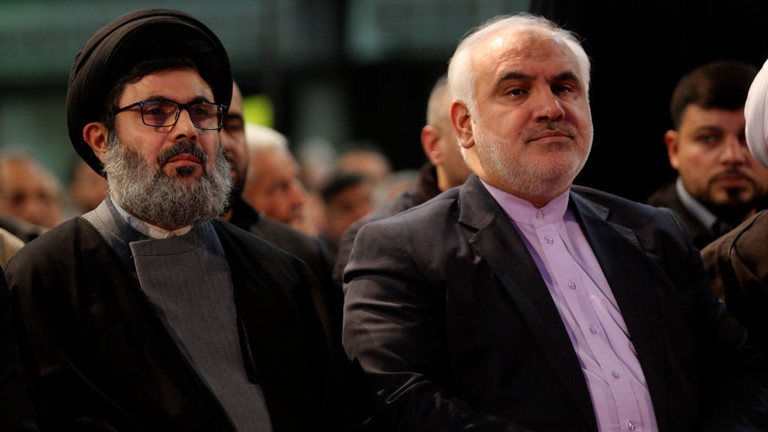World
Israel Confirms Elimination of Hezbollah Leader Seen as Nasrallah’s Successor

Israeli authorities have confirmed the killing of a key Hezbollah leader believed to be a potential successor to Hassan Nasrallah. This development adds to rising tensions in the region as both sides prepare for possible escalations.
The Israel Defense Forces (IDF) announced that they have eliminated Hashem Safieddine, the presumed successor to late Hezbollah leader Hassan Nasrallah, in an airstrike earlier this month. According to the IDF, Safieddine was killed along with the group’s intelligence chief in Beirut.
“The IDF confirmed on Tuesday that approximately three weeks ago, Hashem Safieddine, the head of Hezbollah’s Executive Council, and Ali Hussein Hazima, the chief of Hezbollah’s Intelligence Directorate, were killed along with other commanders in an attack.”
On October 4, the attack occurred in Dahieh, a suburb of Beirut known for being predominantly Shia and a stronghold for Hezbollah.
Israeli jets launched missiles targeting Hezbollah’s underground intelligence headquarters situated in a civilian area of Dahieh, according to the IDF. The strike reportedly occurred while “more than 25 terrorists” were present at the location, though the IDF did not specify how many individuals had been killed or injured.
At the time of the strike, media reports highlighted that Lebanese officials indicated survival chances in the blast zone were “almost zero.” Al-Arabiya reported on Safieddine’s death within hours; however, a formal confirmation from the IDF did not come until Tuesday.
Before Nasrallah’s death, Safiedine was frequently regarded as the second-highest-ranking member of Hezbollah. A 60-year-old cleric and cousin of Nasrallah, Safiedine was widely anticipated to take over the leadership of the organization following Nasrallah’s assassination by an IDF airstrike in Dahieh in September.
Hezbollah dismissed these rumors, stating in a late September release that the reports from certain media outlets regarding organizational changes within their leadership following the Secretary-General’s martyrdom are insignificant and unreliable.
Clashes between the IDF and Hezbollah have escalated following the deaths of Nasrallah and Safiedine. Last week, Hezbollah declared they had entered “a new and escalatory phase in the confrontation with the Israeli enemy.” Over the weekend, rocket attacks on northern Israel increased significantly. Additionally, Hezbollah claimed responsibility for targeting Prime Minister Benjamin Netanyahu’s residence with a drone loaded with explosives on Saturday.
Israeli forces conducted a low-intensity campaign against Hezbollah fighters along the Israel-Lebanon border until September. The alleged Israeli sabotage of thousands of Hezbollah communication devices then marked the beginning of a significant air offensive in Lebanon. This was soon followed by a ground invasion, resulting in more than 2,400 deaths in Lebanon as reported by its Health Ministry.
The IDF asserts that over 1,500 Hezbollah operatives have been killed since the Israel-Hamas conflict started last year. However, Lebanese militants estimate this number to be closer to 500. While the IDF has identified 43 soldiers as having died in border clashes and ground operations in Lebanon, Hezbollah contends that Israel’s actual losses are much greater.
